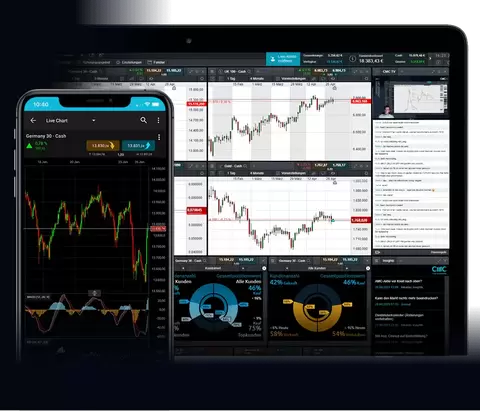The trading experience for serious traders
Become the trader you want to be with our Next Generation platform technology and personal client service.

The complete package for new & experienced traders
For new traders
- One of the established industry leaders
- Three decades of trading know-how
- Award-winning customer service*
- Highly-regarded trader education*
- Advanced risk management
- Tax-free spread betting profits
- No minimum deposit
For experienced traders
- Award-winning trading platform*
- Wide range of charting tools
- Fast, automated excecution
- Expert news & analysis
- Competitive spreads
- Advanced trading tools
- Tax-free spread betting profits
Access your account anywhere
Manage your account, analyse the markets and trade from anywhere on our award-winning platform, available across all your devices.
DESKTOP MOBILE TABLET

*Awarded No.1 Platform Technology & No.1 Web-Based Platform, ForexBrokers.com Awards 2021; Best Telephone Customer Service, Best Email Customer Service & Best Education Materials/Programmes, based on highest user satisfaction among spread betters, CFD and FX traders, Investment Trends 2020 UK Leverage Trading Report; Best Overall Satisfaction, Best Platform Features, Best Mobile/Tablet App, Rated Highest for Charting, Investment Trends Report 2019; Best In-House Analysts, Professional Trader Awards 2019; No.1 Most Currency Pairs, ForexBrokers.com Awards 2020.
**Tax treatment depends on individual circumstances and can change or may differ in a jurisdiction other than the UK.













